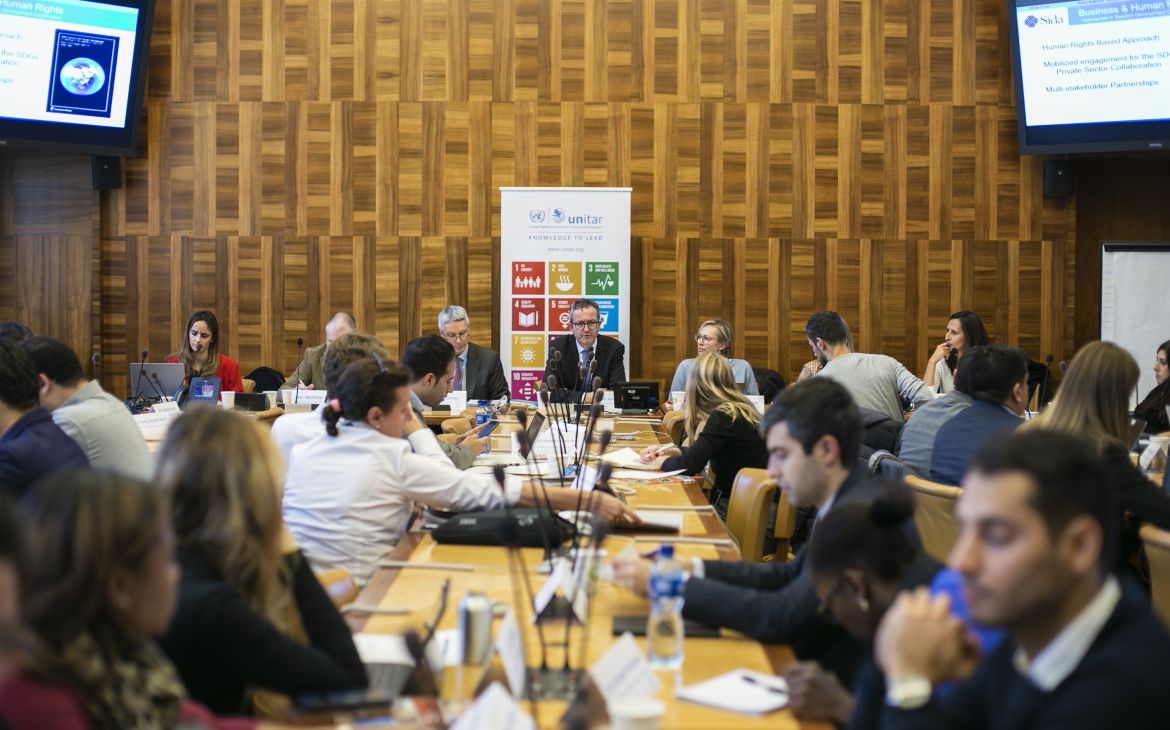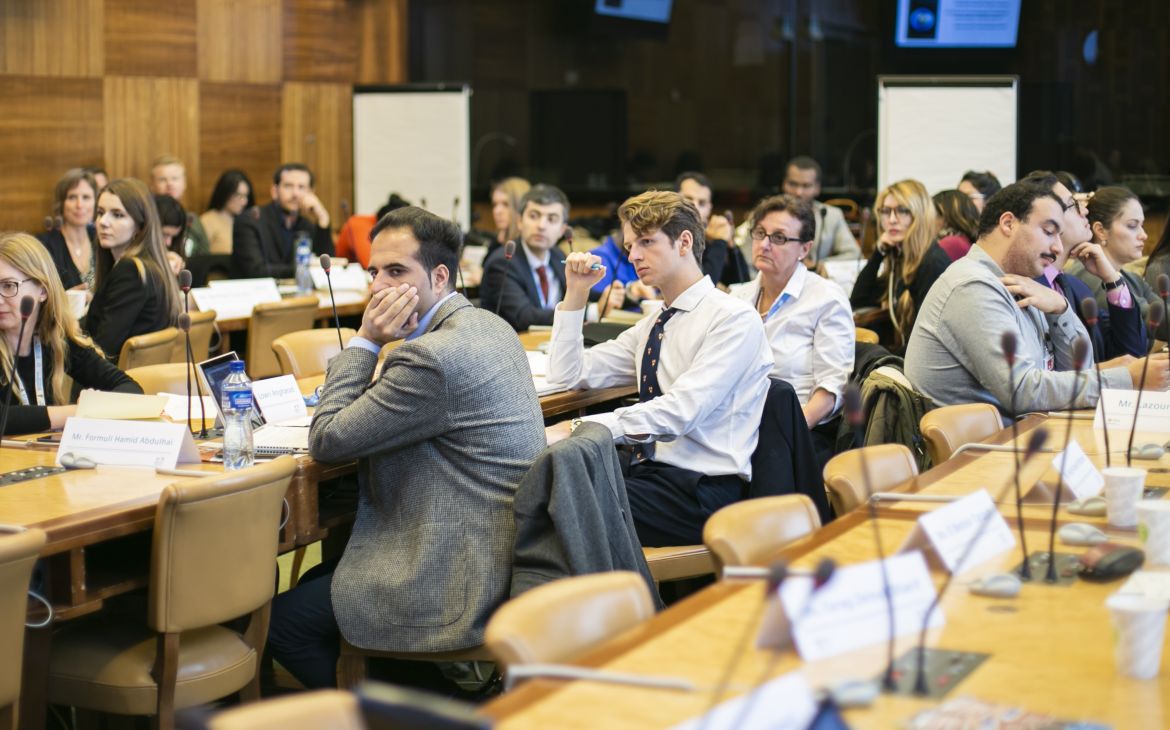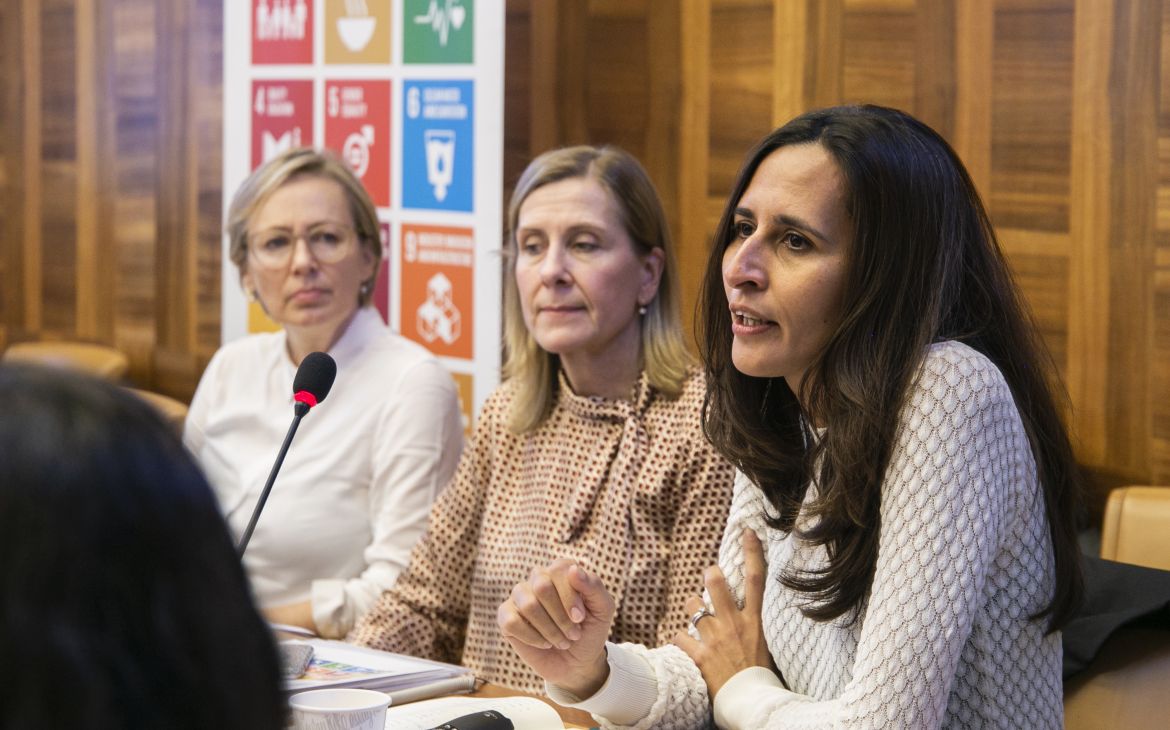9 December 2019, Geneva, Switzerland - UNITAR’s Division for Multilateral Diplomacy delivered a two-day workshop entitled Business and Human Rights: Key to Achieving the SDGs on the 5th and 6th of December at the Palais des Nations in Geneva, Switzerland, with some 60 participants from governments, business, civil society and other stakeholders. The overall objective of the workshop was to help participants gain a thorough understanding of the Business and Human Rights agenda and provide leadership perspectives on the potential and challenges to implement the UN Guiding Principles as an essential means to achieving the Sustainable Development Goals (SDGs).
The training activity was designed and run by Mr. Jerome Bellion-Jourdan, Senior Fellow at the Graduate Institute’s Global Governance Centre and former EU negotiator on Business and Human Rights at the UN Human Rights Council. It included a presentation by Gerald Pachoud, former Special Advisor of the Special Representative of the UN Secretary-General on Business and Human Rights, Professor John Ruggie, on the three pillars of the UN Guiding Principles on Business and Human Rights (“the State duty to protect”; “the corporate responsibility to respect” and “access to remedy”).
A highlight of the workshop was a panel discussion with the following speakers: Ms. Anne Kullman, Senior Advisor Business & Human Rights, Swedish International Development Cooperation Agency (Sida); Ms. Lene Wendland, Chief, Business and Human Rights, Development and Social and Economic Issues Branch, Office of the United Nations High Commissioner for Human Rights (OHCHR); Mr. Crispin Conroy, Permanent Observer of the International Chamber of Commerce to the United Nations at Geneva, and ICC Representative Director (Geneva); Mr. Matthias Thorns, Deputy Secretary-General at International Organisation of Employers (IOE); Ms. Kitrhona Cerri, Director, Social Impact, World Business Council for Sustainable Development (WBCSD); moderated by Mr. Jerome Bellion-Jourdan.
Participants discussed how the 2030 Agenda for Sustainable Development is first and foremost a human rights agenda, and is intertwined with the implementation of the UN Guiding Principles on Business and Human Rights. Partnerships as foreseen under Sustainable Development Goal 17 provide a useful leverage to implement the UN Guiding Principles as a transformative agenda from “do no harm” to driving respect for human rights across the value chain and therefore progressing towards the SDGs. The workshop explored the benefits for business enterprises of developing a human rights due diligence to prevent abuses and to ensure access to remedy when abuses occur. It covered the range of measures that States should consider to foster business respect for human rights - provisions in the UN Guiding Principles for a “smart mix of measures – national and international, mandatory and voluntary –.” The workshop drew attention to the need for States to implement existing obligations and touched upon the process underway to elaborate an international legally binding instrument to regulate, in international human rights law, the activities of transnational corporations and other business enterprises.
The event also featured simulation exercises developed and led by Mr. Bellion-Jourdan to allow participants to explore means to develop a human rights due diligence before deciding on a public-private partnership project geared towards contributing to SDG13 (“Take urgent action to combat climate change and its impacts”) and to respond to a situation to ensure victims’ access to remedy.
UNITAR looks forward to organising similar training activities in the future. We are grateful to the Swedish International Development Agency (Sida) as it is their funding contribution to the UNITAR Strategic Framework Fund that made it possible for participants from least developed countries and other low and middle-income countries to take part in this event.




